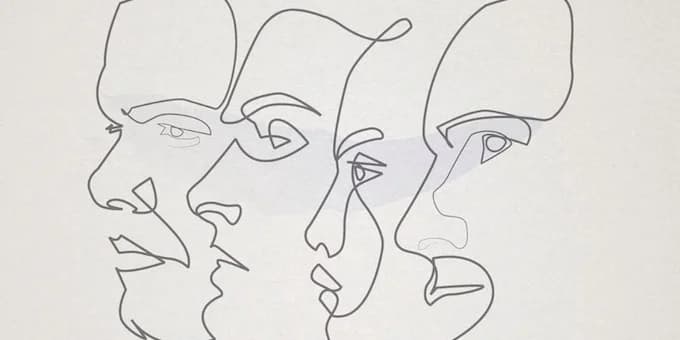Why We Lose Interest In People Who Show Too Much Interest In Us

Artwork: Profiles by Quibe
Kailtlyn Wylde, of Bustle, recently took on the human dating psyche in her piece entitled, Why We Lose Interest In People Who Show Too Much Interest In Us. NYC Tawkify Matchmaker, Sierra, felt Kaitlyn’s analysis of this phenomena might benefit a few clients of hers. In Sierra’s words…
“Interesting- it’s no wonder that people in NYC have such a hard time dating. NYC attracts ‘maximizers’ who are obsessed with making the optimal decision, and being surrounded by so many different people and potential options probably doesn’t help! Might share this one with a few clients.”
Before you dig into the article–I am not asserting that all people are uncomfortable with admiration in this way. But some definitely are. I’ve listened to female friends of mine doubt a man’s sincerity because he seemed “just too enthusiastic.” I’ve witnessed male friends of mine end contact in budding relationships over, “she’s too available.” Perhaps you fall into this group, perhaps not. Regardless, I hope you enjoy Wylde’s analysis.
It’s old news that we want what we can’t have. It’s in our complex human nature to admire those who present themselves as unattainable. Because what that means to our emotionally complicated and ego-driven minds is that person is “too good.” And “too good” is just good enough for us. It’s the plot to every romance film — one character is attracted to another character who appears to be out of their league. That’s a dynamic we know well. It conjures feelings of admiration, intrigue, and praise. We’ve become comfortable thinking that love and attraction is about being in awe of someone.
That exact behavior is the same reason we lose interest in people who show too much interest in us. It’s a dynamic we’re not used to. We’ve come to associate courting with a chase. We secretly enjoy the thrills and lows that come with love you have to fight to earn. It makes us feel like we’re getting something worth our efforts. We need to know that there is value in something before we can invest in it. And when a person is in high demand or hard to reach, we see value in them. Once we see those emotional dollar signs, we feel more confident opening up to the person, and our efforts become validated.
For many biological reasons, we are attracted to people whom we see as “better” than us. The evolutionary point of coupling that results in reproduction is to produce better offspring. So on a primal level, we’re going to be more attracted to people who look like they are healthy, strong, and confident, while having the emotional sensitivity to be protective, loyal, and nurturing. So naturally, whether we’re thinking about it or whether we even want to reproduce, we are conditioned by evolution to want someone whose genes might best combine with our own to “better” our breed. But what does that look like? And why are we so turned off when our partners seek the same in us?
The truth of the matter is that deep down, a part of us all feels unworthy of love. A part of us is insecure about our value. So when someone comes at us showing interest, we assume they have a lesser value. It’s never a thought that perhaps they have an equal value, because we’ve unintentionally trained ourselves to believe that anyone who likes us is deeply flawed. It’s such a common occurrence that one partner loses interest the second the other partner shows equal interest. We see that as a red flag.
But to put someone down for liking you is only putting down yourself. The subtext of this dynamic is “What the hell is wrong with you that you’re so interested in me?” We’re uncomfortable in this headspace. We’re so much more complacent being participants in a chase or being heartbroken because someone we’re interested in has rejected us. That has become the safe space. We have movies to watch to make us feel less alone and playlists to last a lifetime. Rejection feels better than unwarranted affection.
So yes, part of it is natural impulses — we want to find a partner who is unequivocally valuable. But an even bigger part of if it is an unconscious insecurity that only gets between us and potential happiness. If someone likes us too much, we think there’s something wrong with them. If someone likes us enough, we think we can do better. If someone doesn’t like us at all, our eyes become replaced with cartoon hearts. So my question is this: Can the fact that we know why we do what we do help us to not do it? Can we give someone who shows interest in us a chance? Can we we ignore our egos, which say “I can do better” or “There’s something wrong with you if you like me”?
(Kailtlyn Wylde, Bustle)
Love Wisely friends,
Valerie
Editor, Heartalytics
Art: Profiles by Quibe
